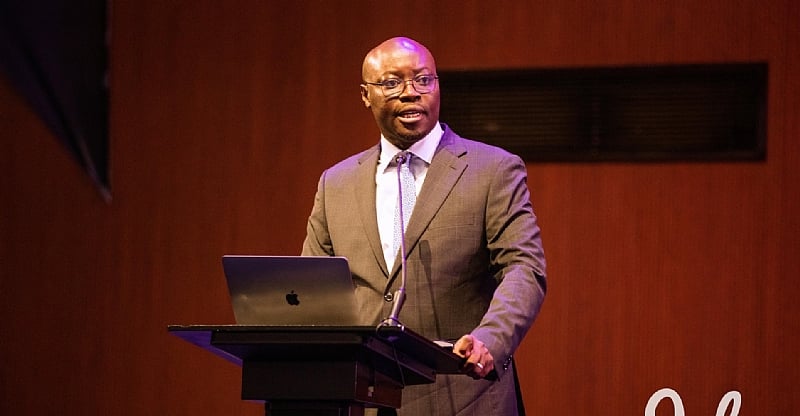Ghana’s 2025 Mid-Year Budget balances economic recovery with deep fiscal reforms. Accra Street Journal analyzes its real impact across businesses, markets, and households.
When Finance Minister Dr. Cassie Ato Forson walked to the podium in Parliament on July 24th, 2025, Ghanaians expected clarity on where the economy stands. What they received instead was a budget review that walked the tightrope between restrained optimism and economic realism. Five months after the country turned the page on one of its worst inflationary periods, this mid-year review presents a case study of economic triage in a country caught between global headwinds and domestic demands.
Ghana, once hailed as one of Africa’s fastest-growing economies, found itself slowed in recent years by inflation spikes, cedi depreciation, and unsustainable debt. With the IMF now at the table and new fiscal discipline on the books, 2025 is shaping up to be a year of reckoning—and renewal.
The Growth Equation
The Finance Minister’s revised GDP growth projection—3.1% down from 4.5%—sent a cautious signal to investors. It isn’t catastrophic, but it’s a step back from earlier ambitions. Agriculture remains resilient, bolstered by local rice and poultry production, but manufacturing and services remain sluggish. Accra Business Journal’s recent micro-survey of SMEs in Greater Accra revealed 6 in 10 small businesses still operate below pre-pandemic revenue levels.
Yet, there’s a glimmer of confidence. Inflation, which soared to over 54% in early 2023, has cooled to 22.6% as of June 2025. Interest rates are stabilizing, and the government’s renewed focus on domestic revenue mobilization—anchored by digital tax compliance and revised VAT enforcement—is beginning to yield results.
Tough Love from the IMF
The budget is clearly tailored to meet IMF performance benchmarks. Cuts in discretionary spending, the trimming of state payroll expansion, and a halt on new infrastructure projects (unless externally financed) signal that austerity—however politically unpalatable—is here to stay.
Subsidies are being targeted and rationalized. Energy tariffs, transportation levies, and import duties are all under review, with reforms designed to widen the tax net rather than deepen the burden on compliant businesses.
But this comes at a social cost. Youth unemployment remains high, and the freeze on new public sector recruitment—while fiscally prudent—is deepening anxiety among graduates. This is where the government is threading a delicate needle: maintaining macroeconomic stability without triggering widespread discontent.
Revenue or Recovery?
The revised revenue target of GHC 180 billion appears ambitious, especially in light of Ghana’s historically weak tax compliance culture. However, digital reforms at the Ghana Revenue Authority and increased cross-border customs monitoring are promising. Government is banking on tech to beat tax evasion—a bold, if necessary, bet.
Accra Street Journal has noted the increased compliance pressure among urban entrepreneurs and freelancers. While some welcome the legitimacy that comes with formalization, others fear bureaucratic overload and corruption in enforcement.
Business Reaction
Markets responded with restraint. The Ghana Stock Exchange showed no major shifts post-budget, but bondholders are watching government signals closely. The private sector, especially manufacturing and fintech, remains concerned about access to credit. Although the central bank is holding the policy rate steady, lending rates from commercial banks remain stubbornly high.
This is the gap businesses hope the government can close through strategic policy signaling, rather than overregulation.
A View from the Streets and Shops
Away from Parliament, the story unfolds differently. In Kumasi’s Adum Market, traders speak more about exchange rate stability than GDP projections. In Tamale, rice farmers are more concerned with fertilizer access than fiscal ceilings. In Labone and Spintex, startup founders talk about survival, not scale.
Final Word
The 2025 mid-year budget may not have delivered big wins, but it has bought Ghana time—time to restructure, refocus, and rebuild trust with its people and partners. Whether this moment becomes a turning point or a missed opportunity depends not only on government discipline, but also on how Ghana’s private sector and citizens respond to this economic recalibration.
At Accra Street Journal, we’ll be watching—thoughtfully, critically, and always from the center of Ghana Business News
This latest business news was first published on Accra Street Journal titled ” Ghana’s Mid-Year Budget Review 2025: Between Austerity and Optimism”


